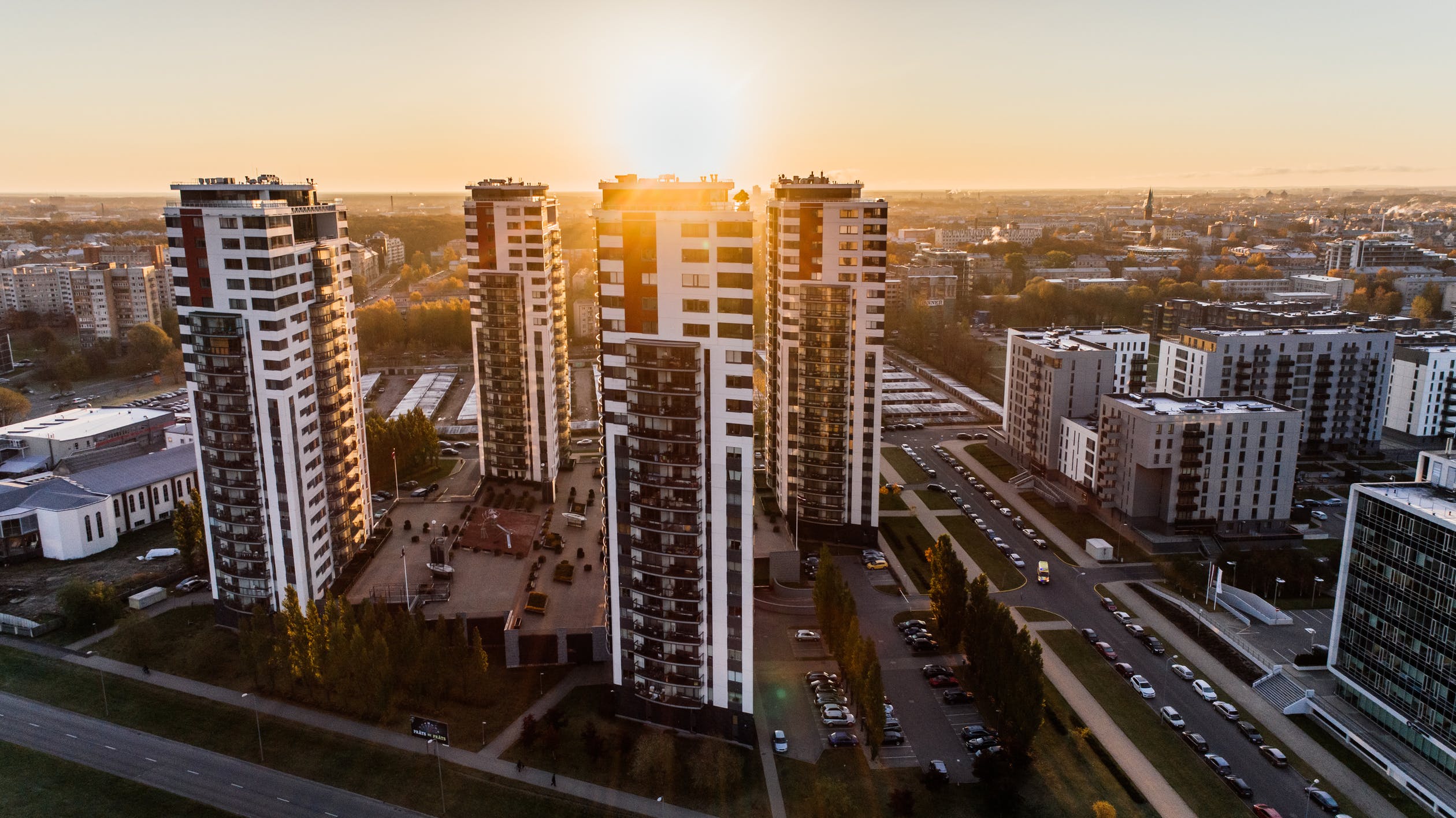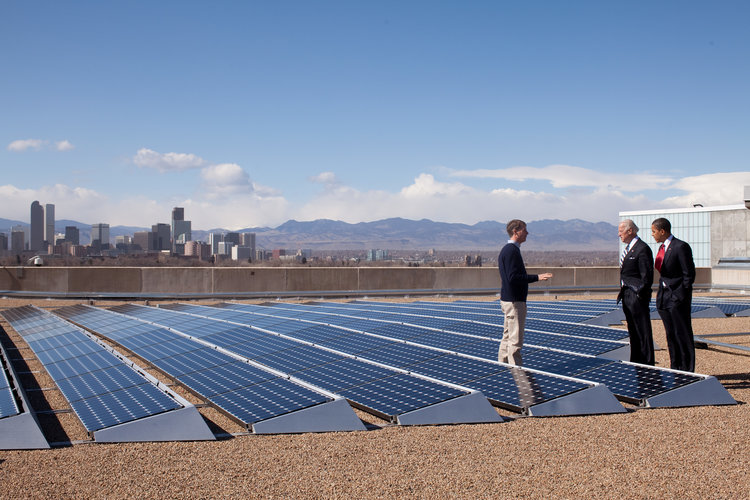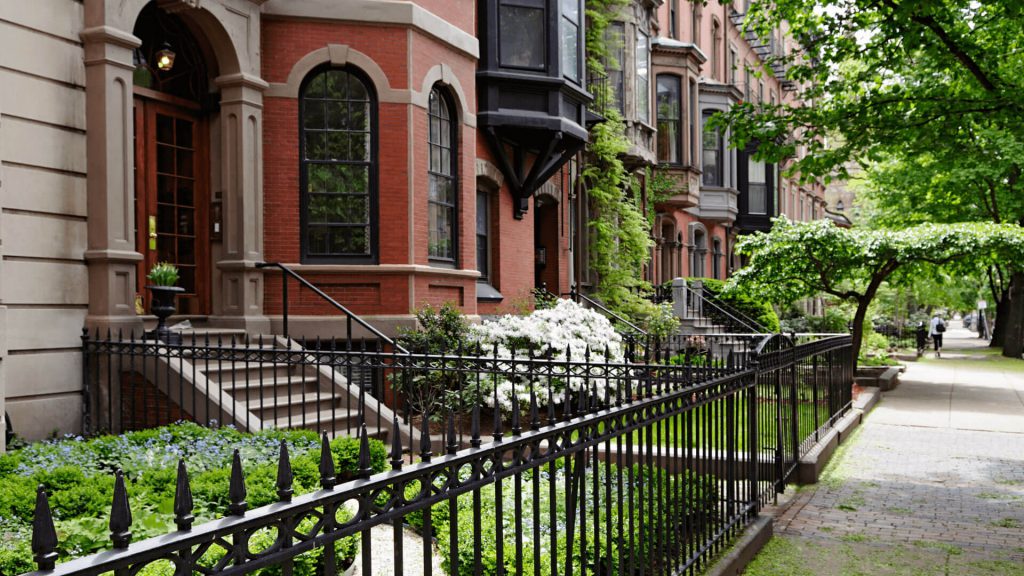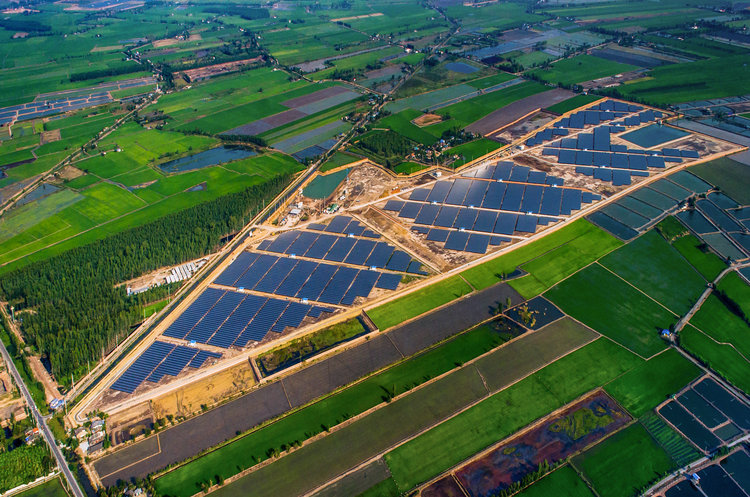We believe that accessible, affordable clean energy is not just essential to mitigating climate change, but a human right. Solstice is dedicated to bringing solar energy to every American household. How? Through Community Solar.
With the need for climate solutions becoming more and more apparent, many leaders in the energy industry focus on building as much clean energy as quickly as possible. This is important work and good for the world; however, this strategy can sometimes neglect to consider how the benefits of that energy are being distributed, and leave the communities who need it the most behind in the process. Recognizing that low-income and BIPOC communities are more likely to be energy-burdened, we aim to create solar projects that include them in the clean energy transition.
Table of Contents
Community Solar is Solar for All
Community Solar allows you to subscribe to a portion of a solar farm in your area and generate your household’s share of clean energy. You support local clean energy without putting anything on your property, paying any extra costs, or changing your utility. Plus, since solar energy is cheaper than traditional forms of energy, households save on their monthly electric bills. To give insight into how it works and how it is changing the American solar landscape, we made this infographic:
Why are so many Americans unable to get solar?
Every day, we hear stories from people who have tried to go solar but couldn’t. For one reason or another, 77% of Americans are locked out of the solar market, according to a report from independent industry research group, GTM Research. Here are a few reasons why:
Unsuitable Rooftops
In order to host solar panels, rooftops need to meet specific criteria. In order to work with rooftop panels, a roof has to be unshaded, south- or west-facing, and relatively new.
What’s more, condo owners, apartment-dwellers, and residents of high-density housing are out of luck. There simply isn’t enough space on a single rooftop to power all of those homes.
With community solar, you don’t have to worry about any of these barriers—you support local clean energy without installing anything on your property.
Renters
Renters rarely have control over modifications to their rooftops, and even if they do, the long-term commitments required for rooftop solar financing make it a complicated proposition. Until recently, community solar contracts have been modeled after rooftop contracts, often lasting up to 20 years.
Fortunately, the industry is headed in the right direction. Solstice works on contracts as short as one year, and for the majority of our projects, there is no penalty for customers leaving early as long as they provide notice.
Now, community renters can get access to solar with little-to-no commitment, and don’t have to worry about cancellation fees or lengthy contracts.

Income Level
Before community solar, solar energy was almost exclusively reserved for middle- and high-income Americans. Hefty installation costs, credit score requirements, and the densely-developed nature of low-income housing were once barriers preventing low-income Americans from getting access to solar. Community solar is poised to make solar energy accessible for populations in lower-income brackets.
Many individuals with relatively high FICO credit scores (above 680), but who live on fixed incomes, are already seeing savings from community solar gardens. But for the more than half of Americans who have lower credit scores, community solar remains inaccessible. That’s why Solstice Initiative developed an alternative way of qualifying people for community solar that is a more inclusive qualifying metric than credit scores and more accurately represents a customer’s ability to pay their energy bill.
We don’t believe your credit score should be your destiny in this country–and we certainly don’t think it should prevent you from joining a local solar garden.
The Solstice Initiative Solution
Through research, advocacy, and projects, and education, Solstice Initiative’s daily work is dedicated to expanding clean energy access so that all Americans can receive financial relief, play a role in offsetting greenhouse gas emissions, and breathe easier.
According to Lauren Levine, Executive Director of Solstice Initiative, “Climate change isn’t fair. It disproportionately harms households that are low-income and BIPOC.”
As climate change effects worsen, this unfortunate truth is becoming increasingly evident around the world. While low-income people and BIPOC bear little-to-no responsibility for causing the climate crisis, they are the ones who will experience flooding, storm damage, drought, famine, heat waves, and other life-threatening disasters on a greater scale.
Community Solar is one of the many warranted solutions. “We aim to empower BIPOC and low-income communities towards a just and inclusive clean energy transition,” Lauren explained. To get there we need to educate communities about the benefits of renewable energy and empower them to take advantage of available solutions.




